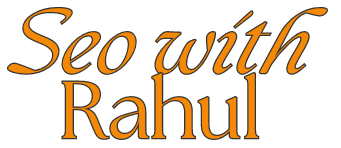Introduction
If you’ve ever heard the phrase “content is king” in digital marketing, you already know how important quality content is for your website’s success. But what happens when your content isn’t unique? Duplicate content can feel like the digital equivalent of plagiarism, and it’s something search engines don’t take lightly.
In this article, we’ll explore what duplicate content is, why it matters, and how it can harm both your website traffic and your SEO efforts. By the end, you’ll know how to spot, fix, and avoid this all-too-common issue.
Understanding Duplicate Content
Definition of Duplicate Content
Duplicate content refers to identical or very similar content appearing on more than one webpage, either within the same website or across different domains. Search engines like Google aim to deliver the best possible user experience, which includes minimizing repetitive results in search engine result pages (SERPs).
Types of Duplicate Content
- Exact Duplicates: Pages with identical text and structure. This often happens when websites fail to manage URL variations or create multiple copies of the same page for different formats.
- Near Duplicates: Pages with slightly modified content, such as using synonyms or slight rewording. These are harder for search engines to distinguish and still pose issues.
Common Causes of Duplicate Content
- URL Variations: When a single page can be accessed using different URLs, such as example.com/page and example.com/page/.
- Printer-Friendly Pages: Many websites offer alternate versions of pages for printing, often without specifying to search engines which version to prioritize.
- Scraped Content: When content from your website is copied and republished elsewhere without permission.
Impact of Duplicate Content on SEO
Crawling and Indexing Issues
Search engines have limited resources to crawl and index webpages. Duplicate content forces these resources to be wasted on identical pages rather than focusing on new, valuable content. This inefficiency can result in slower updates to your site’s indexed pages.
Dilution of Link Equity
Backlinks are a major factor in search engine rankings. When multiple pages share the same content, the value of backlinks can get divided among those pages, diluting their overall impact.
Penalties and Manual Actions
Contrary to popular belief, Google does not always penalize duplicate content outright. Instead, it filters out duplicate results from SERPs, effectively making some pages invisible. However, intentional or malicious duplication, like plagiarized or spun content, can lead to penalties or manual actions.
How Duplicate Content Affects Website Traffic
Lower Search Rankings
When search engines can’t determine which version of a page to rank, they may prioritize none of them. This leads to decreased rankings for all versions, resulting in lower visibility.
Loss of Organic Traffic
If search engines suppress duplicate pages in their results, the visibility of your website as a whole suffers. This means fewer clicks and reduced organic traffic, which can hurt conversions and revenue.
How to Identify Duplicate Content
Tools for Detecting Duplicate Content
- Google Search Console: Offers insights into indexed pages and potential duplicate content issues.
- Copyscape: A popular tool for finding duplicate content across the web.
- Screaming Frog SEO Spider: Allows in-depth crawling of your website to locate duplicated metadata, titles, and content.
Manual Checks for Duplicates
- Review Site Structure: Look for duplicate pages caused by navigation inconsistencies or alternate versions.
- Search Specific Phrases: Input unique phrases from your content into Google to see if they appear on multiple pages or domains.
Best Practices to Avoid Duplicate Content
Canonical Tags
Canonical tags tell search engines which version of a page is the primary one, preventing duplicate content issues. For example:
html
Copy code
<link rel=”canonical” href=”https://example.com/main-page”>
Proper URL Structuring
Ensure URLs are consistent and avoid using multiple parameters that could create duplicate versions of the same content. Stick to one format, such as always including or excluding a trailing slash.
Redirects and Metadata Optimization
- Use 301 redirects to consolidate duplicate pages.
- Implement meta robots tags to prevent specific pages from being indexed.
Fixing Existing Duplicate Content Issues
Consolidating Content
Identify redundant or overlapping content and merge pages that cover similar topics. This not only eliminates duplication but also creates a more comprehensive and authoritative page.
Communicating with Search Engines
- Set Preferred Versions: Use Google Search Console to specify which version of your website (www vs. non-www, HTTP vs. HTTPS) is the preferred one.
- Use hreflang Tags: For multilingual sites, use hreflang attributes to indicate the intended language and region of a page.
Conclusion
Duplicate content can seriously affect your website’s traffic and SEO, but it’s a problem you can solve with the right strategies. By identifying duplicate content, consolidating pages, and using tools like canonical tags, you can ensure search engines see your site as high-quality and authoritative. Protect your traffic and rankings by staying proactive about content uniqueness.
FAQs
Does duplicate content affect local SEO differently?
Yes, duplicate content in local SEO can confuse search engines about the relevance of pages for specific regions, reducing your visibility in local search results.
What exactly qualifies as duplicate content?
Duplicate content includes identical or highly similar content appearing on multiple pages or websites, either intentionally or unintentionally.
Can duplicate content get my site penalized by Google?
Google doesn’t penalize duplicate content unless it appears to be deceptive or spammy. However, it can harm your visibility by filtering duplicate pages from results.
How do I know if duplicate content is hurting my traffic?
Look for signs like a drop in organic traffic or rankings. Use tools like Google Search Console to identify potential duplicate content issues.
What are some free tools to identify duplicate content?
Google Search Console, Screaming Frog (free version for small sites), and manual Google searches are effective and free options.
You may also like : SEO Services , PPC Services




